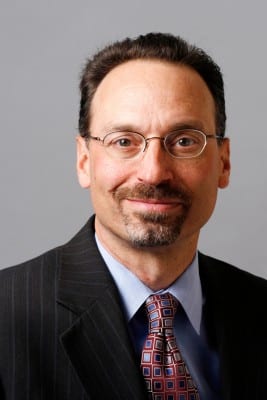
If you were to ask Louis Berger’s chief financial officer Luke McKinnon what the key is to successful outcomes in business, he’d tell you there isn’t a key. There are keys. As CFO, McKinnon provides engineering, operations, economic development, consulting, and management services for infrastructure and development clients all over the globe. He believes successful incomes are the result of a strong marriage between quality people, efficient processes, and well-developed technology.
McKinnon came to this conclusion thanks to his twenty years of experience in the engineering industry. Early in his career, he saw that processes on the accounting side of things were being written manually or through Excel, and he thought there had to be a better way. He reached out to his industry contacts and various software vendors to see if he could find some sort of technology that could improve the process. “I realized, you can buy all of the greatest technology you want, but if you don’t have the process built around it, it won’t really function properly,” McKinnon says. “And if you don’t have the right people to run the process, it won’t function properly.”
No matter the job, whether it’s improving a process that’s currently in place or installing new software, McKinnon sees it as a project. It’s part of the reason he’s taken pride in sharpening his skills as a project manager to go along with his CFO title. As far as project strategy goes, McKinnon likes to determine what outcome he and his team want to get to and work backwards to find the steps to get there. “You have to think about the end result you’re trying to accomplish,” he explains. “Put the plan and the timeline together, and then get the right mix of internal and external folks to help you guide the project along. It can be a simple project or a large project like installing a new ERP system. To me, it pretty much works the same way.”
Louis Berger has embraced the philosophy that People + Process + Technology = Successful Outcomes. Part of the reason for that is due to the fact that McKinnon involves employees from all levels in the decision-making process. For example, he’ll bring an accounting clerk into a planning session for the integration of a new process or piece of technology. Rather than function as an observer, McKinnon expects the clerk to actively participate and inform the discussion.
“I can go into a room and tell everyone how great and wise I am and all of these experiences I have, but I am not the end user who lives it day in and day out for eight hours a day,” McKinnon says. “I find it extremely important to make sure that I’ve got all levels of people at the table, getting their advice and input.” Employees play a vital role in helping Louis Berger balance its mission and financial goals. McKinnon admits he’d rather hire a more experienced (and probably more expensive) employee, because he knows the company is going to grow and wants an experienced person to guide that growth.
A good example of this holistic process is Louis Berger’s implementation of Deltek Costpoint, an accounting platform. Prior to the implementation, the company was using eight different accounting systems. McKinnon brought on several new managers to help with the conversion, and the first phase has been completed. There’s still more work to do, but everyone’s on the same page. “I’ve got the troops rallied to take a look at the system and try to figure out what part of the functionality in the system we did not implement in phase one and how we get that live and running,” McKinnon says.
The engineering industry is one that continues to grow, and McKinnon wants to see Louis Berger grow with it. With a new accounting platform in place, one of the next steps is to make sure the systems are accessible all over the world. “We’re in some pretty remote locations, some developing countries; so technology—from the Internet to network access to computers—doesn’t always necessarily work,” McKinnon says. “We try to make sure we can make our systems all around the world work for all of our employees, so we’re spending some time doing that right now to meet where we think the future of the company is going to be over the next three to five years.”

